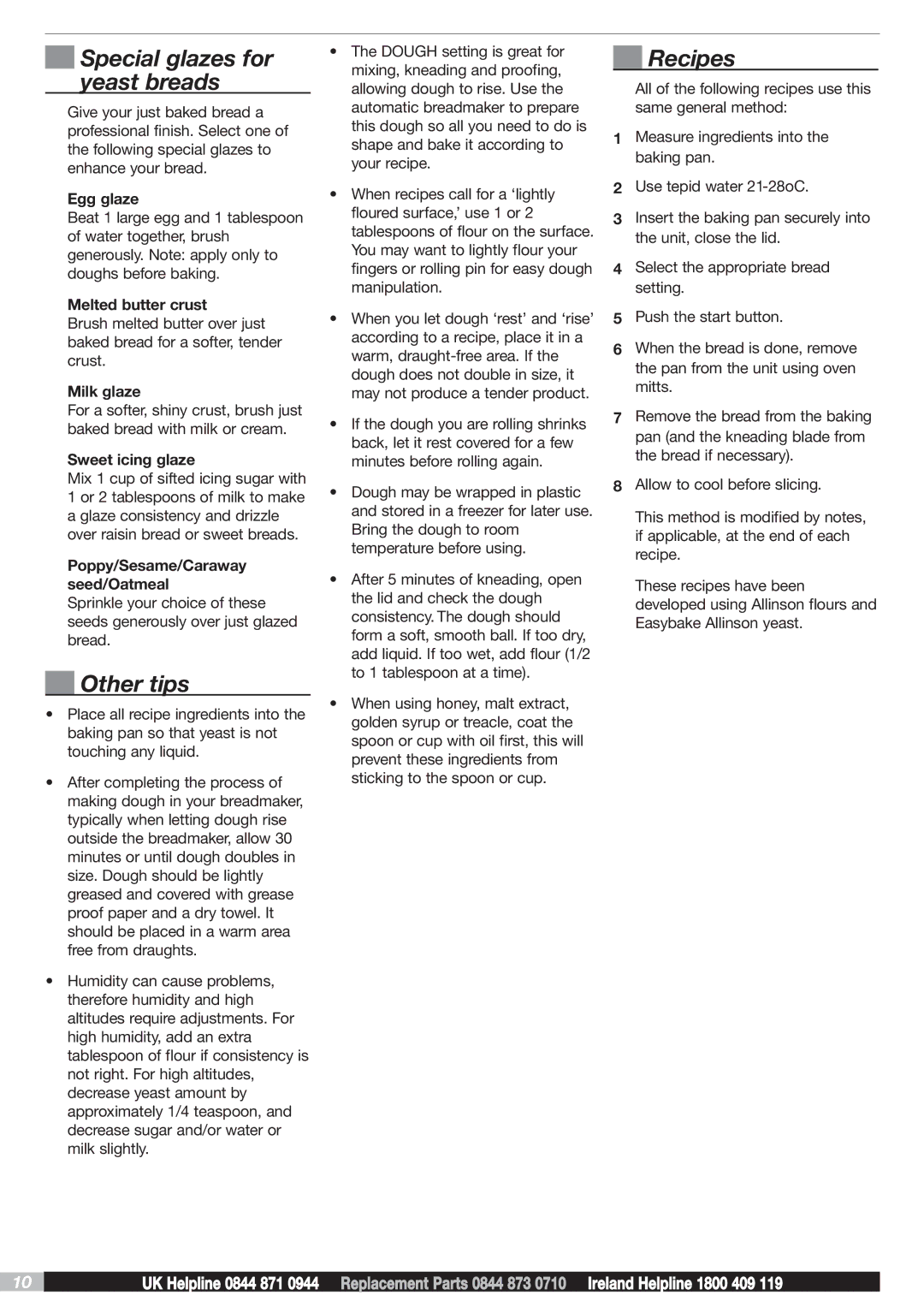BM48268 MUK Rev4 specifications
The Morphy Richards BM48268 MUK Rev4 is a versatile and efficient bread maker that brings the artisan baking experience right into your kitchen. Designed for both novice bakers and seasoned experts, this model incorporates a range of features and advanced technologies, making it a popular choice for anyone looking to create homemade bread with ease.At the heart of this bread maker is a powerful motor and a durable kneading blade, which work in tandem to mix and knead the dough to perfection. With multiple loaf sizes and crust settings, users can customize the final product to their personal preference. Whether you prefer a small loaf for personal consumption or a larger one for family gatherings, the BM48268 provides flexible options.
One of the standout features of this model is its 12 programmable settings, catering to various types of bread, including gluten-free, whole grain, and sweet bread settings. This versatility allows users to experiment with different recipes and ingredients, ensuring that each loaf can be tailored to suit individual tastes.
The Morphy Richards BM48268 is equipped with an intuitive control panel that makes operation straightforward. The LCD display clearly indicates the status of the baking process, allowing users to monitor the progress without lifting the lid. The delay timer adds further convenience, enabling bakers to set their machines to start at a later time. This feature is particularly useful for those who want to wake up to the enticing aroma of freshly baked bread.
In addition to its baking capabilities, the BM48268 also doubles as a dough maker. This means that users can create pizza dough, cakes, or even jams, expanding the kitchen’s culinary possibilities without the need for additional appliances.
Safety is another priority in the design of the Morphy Richards BM48268. It comes with a non-slip base to prevent movement during operation and an automatic shut-off feature to avert overheating.
In conclusion, the Morphy Richards BM48268 MUK Rev4 is a highly functional and reliable bread maker that brings innovation and flexibility to the baking process. With its comprehensive features, user-friendly design, and commitment to safety, it stands out as an excellent addition to any home kitchen, allowing everyone to enjoy the delights of freshly baked bread with minimal effort. Whether you're a beginner or a baking enthusiast, this model has something to offer for everyone, making it a worthwhile investment for your culinary adventures.

